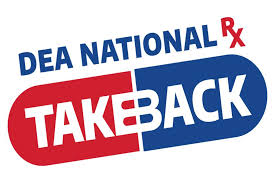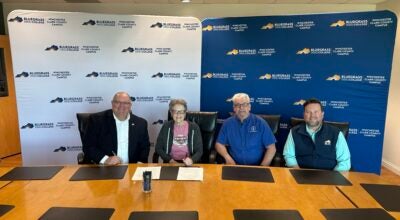What’s happening at the Library
Published 5:00 pm Monday, March 25, 2024

- Clark County Public Library
|
Getting your Trinity Audio player ready...
|
Whether it’s among family, friends, or colleagues, humans are all about fitting in. Though there are many who tout the power of the individual, humans will always be social creatures, seeking out like minds for everything from companionship to cooperation. And yet, there are plenty of us who have, at one time or another or perhaps even most of their lives, have not fit in. .
Many people have had the experience of feeling outside of a particular group. One person’s example of not fitting in might be different from another person’s. Maybe they only know about “not fitting in” from watching the animated Christmas special “Rudolph the Red-Nosed Reindeer” and saw how Rudolph had trouble fitting in with the other reindeer (they may also have sympathized with Hermey the elf who only wanted to be a dentist). I feel, however, that many of us have all experienced a time where we didn’t feel like we didn’t belong, maybe even unwanted. There is a particular kind of pain in that sort of rejection, whether it’s from one individual or from an entire group. For many, this not fitting in earns one the stigma-inducing moniker “Misfit.”
I’m talking about misfits, particularly the pain of being a misfit, on the eve of Flannery O’Connor’s birthday this week. What inspired me about her fiction in particular is not only how drenched it is in Southern Gothic traditions (O’Connor might even be responsible for much of the blueprint in Southern Gothic fiction), but how she writes about those who do not fit in.
Take, for example, one of her most well-known stories “A Good Man is Hard to Find.” The story features a character known as the Misfit, an escaped criminal who has no compunctions about killing, but O’Connor’s story reserves most of its critique for the protagonist known only as the grandmother. This grandmother is one of genteel Southern manners, always making sure to dress finely even as she’s out on a day trip with her son and his family. She also likes to reminisce about simpler times: “In my time . . . children were more respectful of their native states and their parents and everything else.” Yet she’s also more than willing to manipulate the children and everyone else around her to get what she wants. She even tries to do this with the Misfit after the family encounters him and his crew, but the Misfit seems to see through her deception, making this statement about the grandmother: “She would of been a good woman . . . if it had been somebody there to shoot her every minute of her life.“
While the story brings up some uncomfortable aspects of human nature, it does, through the character of the Misfit, offer a vehicle for O’Connor to critique how a glossy veneer can hide some dark stirrings of the heart, and that I believe is the role of all Misfits: to offer observations that don’t always go along with everyone else. Just like Hermey showed that an elf can do something other than make toys, misfits from all walks of life can offer a mirror to reflect different viewpoints. Though I am no criminal (or elf with desires of being a dentist), I have often felt like a misfit, but I’m also realizing that what makes me different makes me unique, and thanks to my family and friends, make me loved. Here’s hoping my fellow misfits out there, wherever you are, find a small corner where, if you don’t exactly fit in, you find acceptance.
On a lighter note, you’ll fit right into these programs happening this week:
On Wednesday, March 27, at 2 p.m., the Kentucky Picture Show presents Dolly Parton, Lily Tomlin, and Jane Fonda spend their days trying to make a living. They play secretaries at Consolidated Companies and they all have issues with their boorish and chauvinistic boss Frank (Dabney Coleman) until they all find a way to turn the tables on him. Popcorn and snacks provided. Rated PG.
* On Thursday, March 28, Learning @ the Library will be hosting Moving Beyond Susan and Elizabeth: The Complicated History of Woman Suffrage in Kentucky presented by Dr. Melanie Goan. This presentation will address misconceptions and will document Kentucky’s contributions to the Nineteenth Amendment. You will learn about the Kentucky Equal Right Association, its leaders, as well as the thousands of men and women, white and black, from all parts of the state who worked to secure “a simple justice.” This program was funded in part by the Kentucky Humanities and the National Endowment for the Humanities. The potluck begins at 6 p.m. and the program begins at 6:30 pm. Space is limited so please register by calling the library at 859-744-5661.





